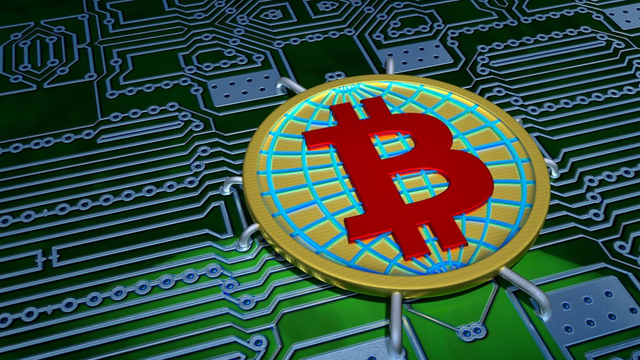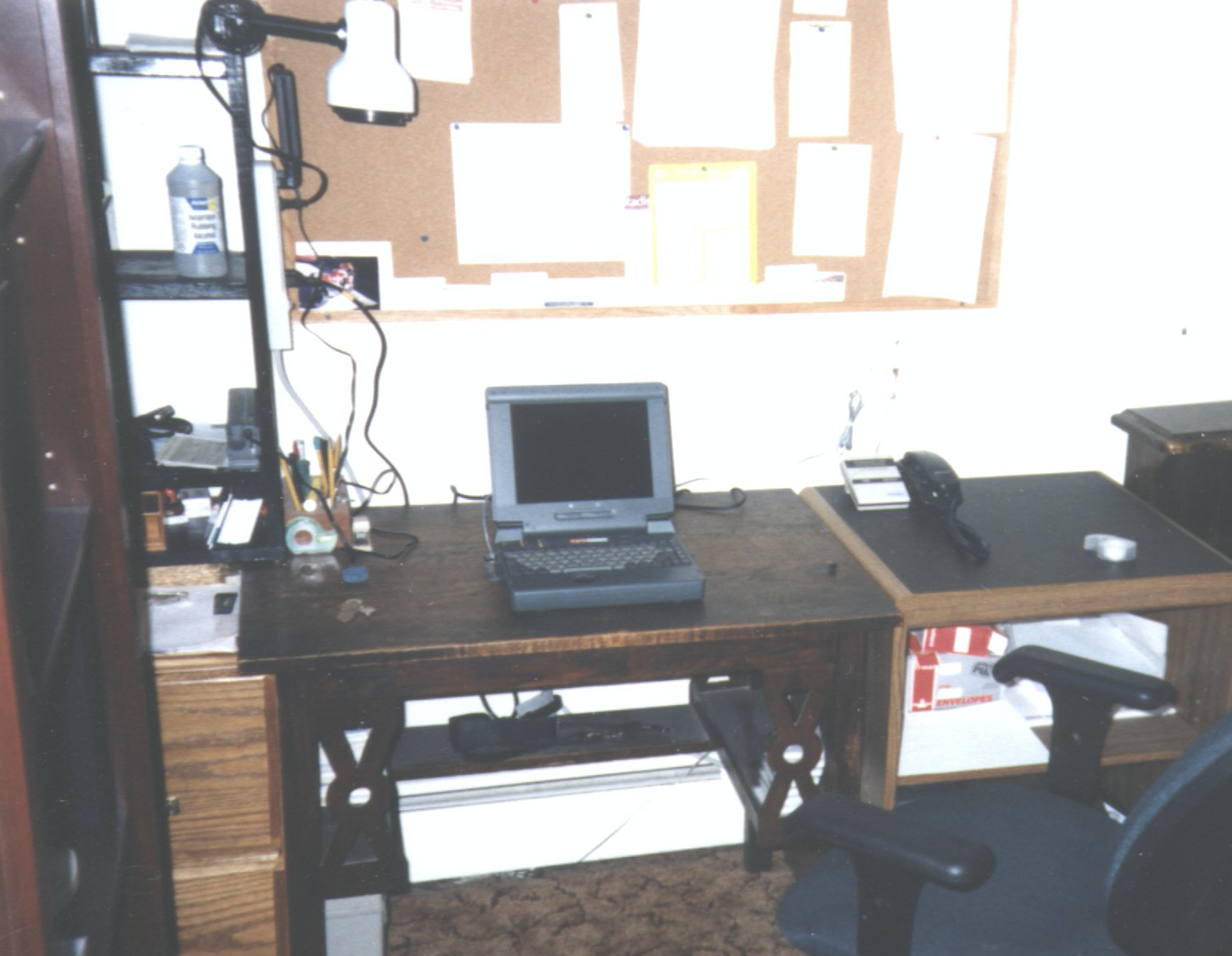What the death of net neutrality means for blockchain technology and why it will backfire against authority
To understand what's going on, lets back up a couple of decades and remember what the internet used to be. I remember working with a PDP 1170 mainframe back in the early 80's and a TRS-80 back around 1977 - 1979. These machines for the most part didn't communicate outside of the building they were in. Later on, a guy named Kyle used to bring his monochrome laptop with him at Syracuse University down to a place called "Hungry Charlie's" where he then used a very slow chip modem to read text from the University bulletin boards. He was considered far ahead of his time back then.
Before that, we used the phone earpiece and mouthpiece and took it off the hook to attach it to a listening base so that it would talk binary to another computer. Later on we took that phone jack to plug into a SIMM modem at 14.4 baud to get rid of the bulky phone. Then lightning fast internet came in the mid 90's with 28.8K and the 56K baud. We used to dial into each other's computers using Telnet and the connection was direct P2P and more often than not we were communicating with bulletin boards or Usenet.

(Google Images - Wikimedia Commons)
Early on, there were no "internet service providers". All we did was use the existing phone lines typically connecting to university bulletin boards and the phone companies had no idea at first that we were doing this. Once they began to realize what was going on, they started trying to find a way to insert a coin collection machine for this special use case into our models (metaphorically speaking). Phone companies didn't like the fact that this technology sometimes made it possible to skirt around their long distance fees.
The internet eventually ate up that business model and ISP's were born. At this time, the number of ISP's though were in the thousands and everyone was setting one up. I used to connect to an ISP called ServTech in Rochester, NY using a phone line back in the mid 90's. Later on a local ISP sprung up called "Dreamscape" apparently taking their inspiration from the web browser "Netscape". Do any of you even remember that one? That was a great browser at the time. This was my setup at the time...

This was around the time that I was setting up my first website (Aug 1995). I used windows notepad to write HTML and FTP to upload contents to my ISP at ServTech and wrote some Perl to allow users to insert their own links using the CGI bin. Not long after that, bots started abusing my list. Then I started to use HotDog HTML editor to make website maintainance a bit easier.
At first, everyone was given free space when you signed up for your home pages. There was a ton of competition and the big companies were out of the loop. AT&T, Comcast, etc were sh*tting their pants. The internet was beginning to take off and Yahoo! was king of the search engines. Well Yahoo! wasn't really a search engine, but a list of high quality links that were the most popular. The search functions came later on. In those early days you used to have to "surf the web" to find what you wanted.
Established power then went back to work scheming about how to get themselves back into the game to cut out small businesses and take the lions share of earnings. These ISP's that were formed in the early - mid 90's were receiving increased pressure from regulators. Pretty soon only the big players could compete in the new environment and these small ISP's were forced out of business. Big corporate media conglomerates were lying in wait. The centralization of the web had begun and soon after, Google made it's debut to do the same thing to internet search engines.
I used to use bots to submit my web pages to about 15 different search engines in order to be listed. The web was much more decentralized back then. In order to have significant traffic, you had to try to at least keep up to date with which search engines had the most traffic. Now there's only one with significant traffic. Google. Censorship has long since been a problem and there's great irony in their slogan "don't be evil". Maybe we shouldn't be putting companies in such a position where they are allowed to contemplate whether to be evil or not. This is where blockchain technology comes in to decentralize the web.
We need to do this the right way this time. We made a mistake in not insisting upon base level encryption at the TCP/IP level back in the early 90's and now we're paying for it by having all 5 backbone providers in the world owned by the NSA. Because those of us designing the internet infrastructure were decent people, most of us never imagined how this technology would be misused by authority.
(relevant comments by Andreas about the NSA are around 15:00)
But authority was always scheming, using what we built to look at porn and then accusing us of the crimes they were committing in order to take control for themselves. Those of us who had the intellectual ability to conceive of how it could make a better world were busy with much more high minded ideals.
The good is often overcome by evil small mindedness, at least in the beginning. We were naive, but at least I know better now. They are busy building a digital panopticon which is a system of law enforcement on steroids. I imagine that Einstein had the same regret handing over nukes to small minded business suit monkeys. So how do we clean up this mess? In a word, decentralization.
Fortunately, because people in power generally lack imagination, it's our ingenuity that catches them off guard. I did this once in my own field because establishment is generally lazy. The biggest welfare whores are actually the corporations getting special deals from lobbyists, not the mother of three children abandoned by a shiftless husband. Authority is expert at one thing though; manipulating your prejudices for profit and power.
I eventually realized that the two lever game (D and R) was just a placebo meant to distract you from what's really in control, which is why I'm now a voluntarist.
So now authority thinks it has the situation all cinched up. They are so wrong that the unfolding drama is going to be epic. The death of net neutrality will likely spur greater interest in VPN's. If ISP's don't know what you're looking at, it becomes much harder for them to discriminate. That's a partial solution for end users. Users in the USA may find that they can't do anything much without it because this ruling makes it possible to turn the internet into a cable TV network pay per view model. If you start doing this, next they will try to "license" VPN usage (mark my words).
The fact that anti net neutrality keeps dying and continually is resurrected is very suspicious. It takes a lot of money to keep bringing this up in court, and corporations don't do this unless they know massive profits are in store for success.
Those of us who run small businesses are likely to have to pay more for access and many will suffer outright censorship. Of course this bill will still have to go through the Senate. The fact of the matter is that we don't have an open free market and this ruling will be the "trickle down economics" of internet policy if it passes. It's naive to expect that this will "fix it". What will fix it is blockstack.org and other projects that disintermediate authority by creating protocols that transcend national borders.
The fact that bitcoin is transnational means that no authority can completely overcome it. All nations would have to band together as one nation (fat chance) to be able to snuff out bitcoin and the decentralized technology that its spawned. It's the nature of national disagreement that ensures the survival of this technology.
Donations (public bitcoin address):

3FwxQsa7gmQ7c1GXJyvDTqmT6CM3mMEgcv

First, thanks for the "throwback" explanation of how it all began. It totally took me back to the days of playing on my dad's Commodore 64 in amazement.. then years later, the double amazement dialing into my AOL account! haha! It seems so crazy how fast it's all happened.
Second, thank you for putting the perspective on how the net neutrality issue affects the bitcoin one. I just bought a little and have hopes... still have a lot to learn!
Ha! I remember that "you have mail!" voice in AOL. I soon got rid of that it was so annoying.
Haha! So did I!
"Net neutrality" is just internet regulation. Just because they insist motives are altruistic doesn't mean thats the limit of what regulations will be put in place, why are so few people skeptical of the government claiming to be altuistic? Classifing ISPs as title 2 gives the FCC discreet regulatory authority, a centralized control stick for lobbyists, of course it would be abused.
I understand the concern over the decreasing competition of ISPs, that always happens as a technology matures and commoditizes, if the market is allowed to innovate freely, it will be disrupted. If innovation is limited by regulation, it will prolong the status quo, and increase monopolization.
There are allegorical parellels throughout history, we need to be patient and let the market find a solution.
If we want regulation, laws against cronyism could be useful, not more regulation over what little free market we have left.
Thanks for this information and the history of the internet.
I am thinking that you are optimistic that there is a solution around this.? That we are going to see decentralization open a lot of things up?
I think we may be in for a digital panopticon for a time until people finally understand why this is happening, but in the long run, yes, very optimistic. Equifax magnitude data breaches cannot be avoided long term. To understand why, watch this video by Andreas Antonopoulos...
The people engineering this panopticon lack imagination which is why they eventually get caught with their pants down. I did this once to others in my own industry. It's in the nature of most authority/leaders to become blindsided sooner or later.
Great post, It would be awesome if you can write more about the ways that net neutrality ban will backfire. Thanks @zoidsoft.
Mostly because centralization of power and authority into a digital panopticon creates a situation where hackers and everyone else can stare back. Equifax magnitude data breaches aren't sustainable over the long term and on top of that, they're draining equity from their mafia driven national fiat into fixed SOV crypto's. Being able to put your "full faith and credit" outside of the system through crypto such as bitcoin will be the driver that weakens central authority. When they have to pay their cops in the illegal currency just to keep them on the job, Greshams law will have run its course.
Agreed.
.
.
.
We need to decentralise everything in order to attain a more level ground for equality.
hi friend i liked in your post ....may be a question
may be i reasteam you
This post has received a 0.81 % upvote from @buildawhale thanks to: @zoidsoft. Send at least 1 SBD to @buildawhale with a post link in the memo field for a portion of the next vote.
To support our daily curation initiative, please vote on my owner, @themarkymark, as a Steem Witness
@zoidsoft
posted a new post please have look upvote and support
https://steemit.com/mgsc/@amang9578/options-to-buy-bitcoins-in-worst-case-for-indian-investors
I miss Netscape lol.